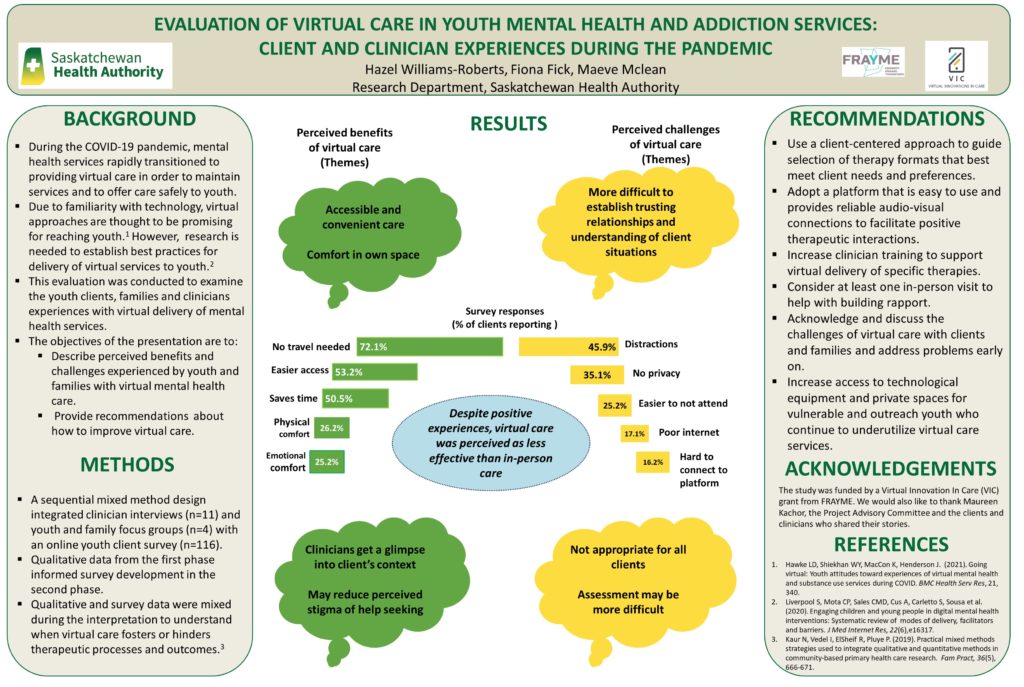The COVID-19 pandemic resulted in a rapid transition to virtual care delivery. Virtual care approaches are thought to be promising techniques for reaching youth because of their familiarity with technology; however, research is needed to determine how to optimize virtual delivery of care. A formative evaluation examined the experiences, benefits, and challenges of virtual care from the perspectives of youth clients, families, and clinicians, using a sequential mixed method design that integrated interviews with clinicians, client and family focus groups with an online client survey. Qualitative data were transcribed, coded, and themed to identify patterns and meaning of the data. Survey responses were analyzed with descriptive and inferential statistics. Findings suggested that virtual care was a way to minimize disruption to care; however, it was not a preferred substitute for in-person interactions. Clinicians felt that the best care delivery format is that which meets their clients’ needs and preferences. Benefits of virtual care included scheduling flexibility, convenience, fewer cancellations, greater comfort from being in a familiar space, and an increased understanding of the client’s context. Perceived stigma was reduced with virtual care for some clients. Challenges associated with virtual care included lack of privacy, distractions, technological difficulties, and difficulties in creating a trust relationship. Some clients perceived virtual care as more optional than in-person care. Virtual visits were less appropriate for clients who required more intensive approaches. Clinicians felt they would benefit from increased training in virtual care delivery. Virtual care is a viable and effective option when clients and clinicians have the technology and supports needed to create a safe space and are able to build trusting relationships needed for good outcomes. It is helpful for clinicians to acknowledge and discuss the challenges of virtual care with clients and address issues early in the relationship. Clinicians may need to intensify efforts to understand client needs, especially when clients struggle to express themselves. Reliable virtual platforms that enable face-to-face interactions are required to facilitate trusting relationships. Strategies are needed to enhance access for marginalized groups.
Spring Virtual Conference April 17-18th | In-Person Annual Conference in San Antonio, TX Oct 24-26th


Leave a Reply